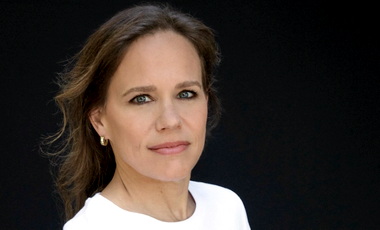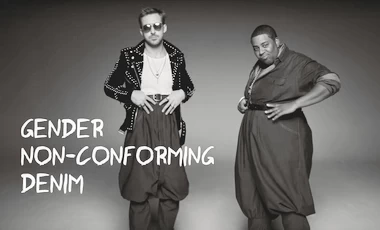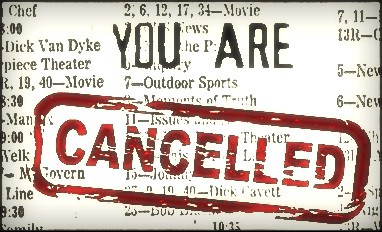- Trans identified males are taking medals, team berths and sponsorship dollars away from women. And not a single athletic brand is standing up for the protection of women’s sports.– Jennifer Sey’s Substack
Wow. The Democrat Left is cray-cray…. and in all their redefining of fascism, Hitler, and the like as normal thoughts of common sense, they — in the end — diminish real evil. Making it nothing but a passing thought/weapon to emote about something they disagree with rather than a real historical evil meant to warn of actual dangers of man’s nature.
FLASHBACK POST: Female athletes have lost nearly 900 medals to transgender rivals competing against them in women’s sporting categories, an eye-opening United Nations report has revealed. (RPT)
BREITBART fills us in on the latest misuse and diminishing of real evil:
A pair of teenage girls at a California high school are accusing officials in their athletic department of comparing their “Save Girls’ Sports” t-shirts to “swastikas.”
Kaitlyn and Taylor, who play on teams for Martin Luther King High School in Riverside, California, say they were disrespected by school officials when they wore their “Save Girls’ Sports” shirts in response to a transgender player who rarely attended practice and should not have qualified, but who was still placed on a varsity team, displacing Taylor, Fox News reported.
Now the girls are suing their school.
“My initial reaction was like, I was really surprised, because it was like, why is this happening to me?” Taylor said. “There’s a transgender student on the team. Why am I getting displaced when I’ve worked so hard and gone to all of the practices, and this student has only attended a few of the practices.”
The girls allege in their lawsuit that school officials made them remove their activist shirts and were told they were creating a “hostile environment” at the school. They also say that officials said the shirts were the same as wearing a swastika.
[….]
Attorney Julianne Fleischer alleges that the school violated her clients’ First and Fourteenth Amendment rights and their Title IX protections.
“We’re seeing more and more women and young girls speak up and challenge these policies that are allowing biological boys to join and participate in these sports,” Fleischer insisted. “And so there’s lawsuits that are popping up all around the country. We’re hopeful that even with the incoming administration and Congress that we’re going to see real positive change to Title IX that actually upholds and safeguards the rights of women to participate in their sports and to be safe and to be able to compete amongst one another.”
[….]
For instance, a girls’ high school volleyball team at a Christian school in Merced, California, recently forfeited a game because they did not wish to compete against a trans player.
The Christian high school is only one of a growing list of school teams that are refusing to play against opponents with transgender players. A lawsuit was filed this year against San Jose State University (SJSU) and the Mountain West Conference for allowing a male athlete to play on the SJSU women’s volleyball team.
To date, five colleges have refused to play against SJSU over the school’s inclusion of transgender player Blair Fleming.
The National Collegiate Athletics Association (NCAA) is also being sued by several groups over its policy of allowing transgender players to play as women.
A Couple Brave Girls Speak Out Against the #WarOnWomen
Daily Caller describes their longer video of the above clip, “Save Girls’ Sports” is now a Nazi phrase? These people will never learn, will they?”
PJ-MEDIA agrees, they haven’t learned what the issue… the real issue is about:
This past week has seen certain LGBT issues take center stage again after House Speaker Mike Johnson (R-La.) officially declared that sex-segregated spaces at the Capitol, like bathrooms and locker rooms, “are reserved for individuals of that biological sex.” This commonsense policy that protects women has prompted all sorts of outrage from the radical left. Naturally, the left doesn’t see it this way and is fuming over it.
Rep. Alexandria Ocasio-Cortez (D-N.Y.) said the policy is “endangering all women and girls.”
Her response was the epitome of stupid, but she wasn’t the only one distorting the issue.
Sen. John Fetterman (D-Pa.) offered his office bathroom for Representative-elect [Tim] Sarah McBride to use and declared “There’s no job I’m afraid to lose if it requires me to degrade anyone.”
And then there’s Rep. Becca Balint (D-Vt.), who said, “My GOP colleagues, who privately tell me they don’t hate LGBTQ+ people, should find the courage to reject the dehumanizing rhetoric. Your silence is deafening.”
Her tweet, dripping with the kind of condescension we’ve come to expect from progressive Democrats, misses the mark entirely. This isn’t about hate. The debate over policies like barring biological men from women’s bathrooms, locker rooms, and sports isn’t about hate — it’s about protecting basic rights and common sense.
Americans have every right to defend spaces and opportunities specifically designed for women. These aren’t trivial issues — they involve fundamental questions of fairness and safety that, for some reason, the radical left has completely abandoned because it’s now owned by the transgender lobby.
Remember, it took a long time for women to get the same opportunities as men. Think about it. Title IX, the landmark federal civil rights law that prohibits sex-based discrimination in education, was only passed in 1972. Nearly fifty years later, the idea of biological men competing in female athletics has become the cause du jour of the radical left, completely undermining the intent and spirit of the law.
Men who claim to “identify” as women enjoy biological advantages that cannot be erased with plastic surgery or hormone treatments. It doesn’t matter what a man’s “preferred pronouns” are or if he puts on a dress. He’ll have higher bone density, muscle mass, and lung capacity, giving him an edge that his female athletes simply can’t match.
Allowing biological men into women’s sports effectively robs women of the chance to compete on an equal playing field and, sadly, has stolen accolades and opportunities from real women.
The same principles apply to private spaces like bathrooms and locker rooms. It’s not “dehumanizing” or “degrading” to say that women and girls deserve privacy and safety. It’s not hateful to expect boundaries rooted in biological reality. It’s about respect — both for real women’s needs and for the truth.
Balint’s claim that silence equals complicity is a typical identity politics tactic, demanding moral submission instead of fostering meaningful debate. And Democrats never want to debate the issues. Particularly this one.
The real issue is the left’s refusal to acknowledge that concerns about protecting women’s sports and private spaces are grounded in science and shared by many Americans. Conservatives must reject the false narrative that defending women’s rights is anti-LGBTQ. This debate isn’t about hate but about fairness, dignity, and recognizing biological differences are real and cannot be erased.
In honor of #XXDay tomorrow, please join us in asking @Nike to do the right thing & stand up for girls, by sharing our new ad, “Dear Nike”. pic.twitter.com/af8XeYPhTv
— XX-XY Athletics (@xx_xyathletics) October 9, 2024
A VOLLEYBALL UPDATE:
PJ-MEDIA writes about the lawsuit, I will follow that up with a HOT AIR update:
… Luckily, some college athletes have had enough of this type of nonsense, and they’re taking legal action.
San Jose State volleyball player Brooke Slusser, along with SJSU associate head coach Melissa Batie-Smoose, and 10 other college athletes have filed a lawsuit against the school and the Mountain West Conference, the NCAA Division I conference in which the school plays.The women claim that their Title IX rights have been violated by SJSU allowing a transgender athlete on the volleyball team.
“Among the allegations in the lawsuit are that SJSU coach Todd Kress gave the player in question preferential treatment, that the Mountain West amended its transgender athlete participation policy without following conference protocol and that the conference fostered an unsafe environment by allowing the athlete to play,” according to ESPN.
Fox News reported that several female athletes were overlooked for scholarships because of the transgender player’s “physical dominance.” The lawsuit documents also suggest that Slusser felt her personal safety was in danger when the transgender athlete and another player got together and put a plan in place to have the ball spiked right at her head in a match with Colorado State.
Upon hearing about the plan, Batie-Smoose attempted to stand up for the girls on the team by talking to Kress and filing a Title IX complaint, but she was suspended from the program. “They took away the only safe space we had,” Slusser said of losing her coach. She also accused the school of silencing people who were just trying to stand up for what’s right. ….
HOT AIR posts on the growing legal challenge growing in California:
… Last week I wrote about a Title IX lawsuit filed by players and one coach against the San Jose State University women’s volleyball team. The lawsuit was filed because the SJSU team includes a trans woman whose athletic ability exceeds that of other members of her team or, according to the lawsuit, of any player on any women’s team.
During practices in August 2024 immediately before the 2024 season Slusser and Batie-Smoose saw that Fleming was hitting the ball with more force than in 2023 and far harder than any woman they had ever played or coached with or against.
Where Fleming stood out was spiking the volleyball and blocking on the front row due to Fleming’s leaping ability and hitting power, which far exceeded that of any player in the conference and was the most explosive of any player that SJSU’s Associate Head Coach has observed in collegiate women’s volleyball…
Fleming’s spikes were estimated to be traveling upwards of 80 miles per hour, which is faster than a woman hits a volleyball.
Now the University of Utah has filed a motion to join that lawsuit.
Utah State University has filed a motion to join a federal lawsuit against the Mountain West Conference, challenging the organization’s transgender participation policy.
The move comes after the state’s Republican political leaders — including Gov. Spencer J. Cox, Senate President Stuart Adams and House Speaker Mike Schultz — urged the university to join the lawsuit that was filed last week in U.S. District Court by 11 volleyball players and one coach in the Mountain West.
USU volleyball player Kaylie Ray is one of the 12 plaintiffs in the original lawsuit. According to Utah State’s motion, the Aggie volleyball team took an anonymous survey and 11 players, including Ray, decided to not play an October match against San Jose State “due to concerns of fairness and to communicate that they do not agree with the TPP (transgender participation policy) and hold strong personal and political beliefs that transgender women should not be permitted to compete in women’s sports.”
BRAVO! ??????




